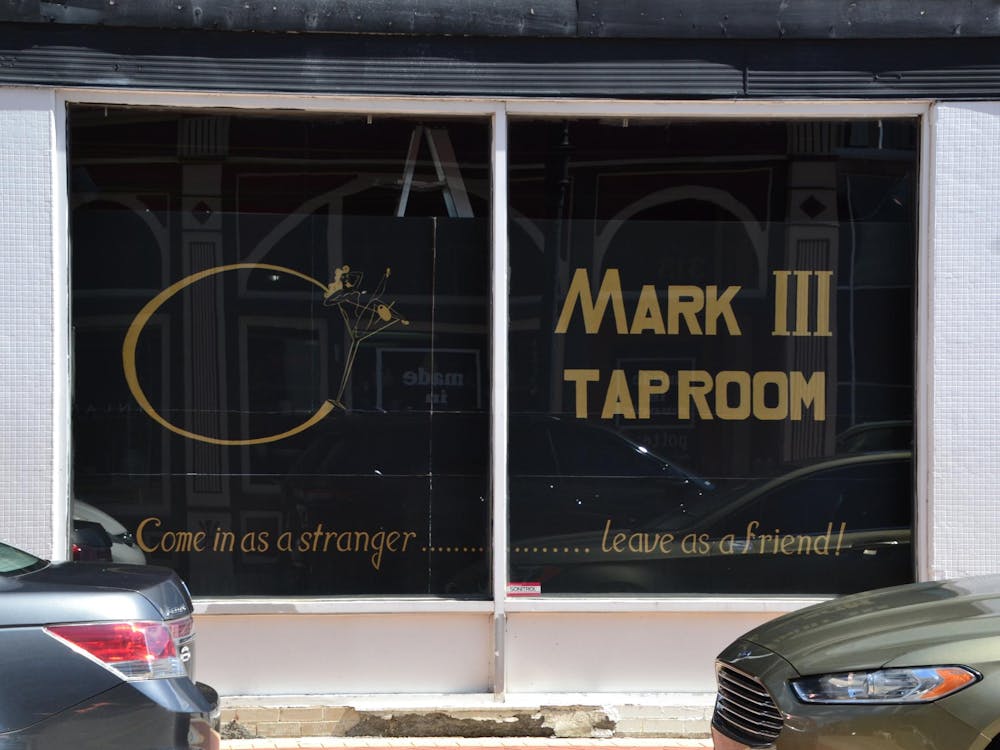MARYSVILLE, Ind. — Tony Sherrard sat in the back of his pickup truck, smoking a cigarette and gazing out at what had been the foundation of his home. Now it was a jumbled square of concrete blocks, left churned and bare by the tornado that barreled through the tiny hamlet of Marysville while his family cowered in a neighbor's house.
"They haven't found my house yet," he said.
Perhaps, like others, it was splintered and scattered in the muddy farm fields just outside of Marysville. That's where volunteers found some of the remnants of his life: a baby picture, a couple of CDs, his daughter's iPod and a kitchen broom.
"You couldn't ask for better people," said the 40-year-old Kentucky native, who lives on disability. "Without the volunteers, I wouldn't have what I've got today."
Since March 2, when tornadoes plowed through a handful of small towns in southern Indiana and left 13 people dead, the area just north of the Kentucky border has been swamped by hundreds of people wanting to help. More than 1,700 people have registered at an official volunteer center in Jeffersonville, and untold others have signed up through local coordination spots including Marysville's post office.
The volunteers range from retirees in jackets and baseball caps to Amish workers in wide-brimmed hats and suspenders. They are church members, construction workers, housewives, even those who've survived their own brush with disaster.
The flood of people wanting to help initially overwhelmed relief agencies because emergency crews dealing with downed power lines and other hazards hadn't yet deemed it safe to send people in. Some volunteers were turned away after leaving their names and contact information with volunteer organizers.
But relief agencies say there will be plenty of opportunities for people to help in the coming weeks and months.
"There's going to be a continuing, long-term need for volunteers," said Bob McIntosh, a 39-year Louisville Metro United Way veteran staffing a reception center in downtown Jeffersonville. "This recovery isn't going to happen overnight."
On Wednesday, about 75 people filled the former auto showroom that serves as the volunteer center. Some sat at tables filling out forms and listening to McIntosh give safety lectures. Others stood in line to receive T-shirts that would serve as their identification or waited to learn where they would be deployed.
McIntosh told volunteers that one of the best ways they could help was to listen to victims' stories.
"For some of these people, this is the most traumatic experience of their lives," he said.
Organizers tried to match skills sets with specific needs. Some were sent to towns to clear debris; others were sent to warehouses where donations of food and household goods were stockpiled. On this day, volunteers were badly needed to help care for rescued pets at an animal shelter.
"There's definitely enough work for all of them to do," said Jessica Van Ness of the Indianapolis chapter of the Jewish relief organization Nechama, who was handing out assignments. "It's just connecting them with the right work."
In Marysville, an unincorporated town of a few hundred people about 20 miles away, about a half-dozen people crowded into the post office's tiny lobby. There, they received assignments from Cindy Chesbrough of St. Paul's Methodist Church in Joplin, Mo., where a massive tornado struck last May.
Chesbrough said her own home was spared by the Joplin storm, but she knew people who lost their homes and wanted to help the victims in Indiana.
"I knew what they would be going through," she said.
Volunteers swarmed throughout the little town, nailing tarps over gaping roofs, clearing uprooted trees out from yards and moving furniture and other belongings out of houses that were battered but still standing. Others wandered through the fields on the outskirts of town, gathering debris and piling it into dozens of mounds that sat evenly distributed across the fields like miniature pyramids.
Though McIntosh warned volunteers that they would be shocked by what they saw, many were plainly in awe of the destruction the 150-mph winds had caused.
"I realize I've been picking up splinters of people's houses all day. Real sad," said Nokie Brumback, 54, of Shelbyville, Ky., who spent the day clearing debris from a field where farmers should be planting in a few months.
She looked across the field to where metal objects glinted in the distance.
"Those are combines over there," she said. "Do you know how heavy a combine is?"
A short distance away, Jarred Dune, 35, who lives about a mile from Marysville, worked with two other people throwing boards onto a pile of tangled debris. "Some of the houses are so far gone it looks like God's hand came down out of the sky and flicked a finger, and it was just gone," he said.
"It wasn't God," said Deanna Babbs, 29, of Corydon. "God wouldn't do that."



